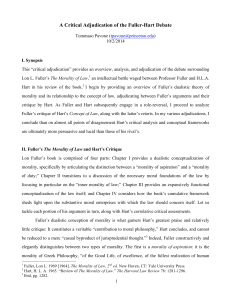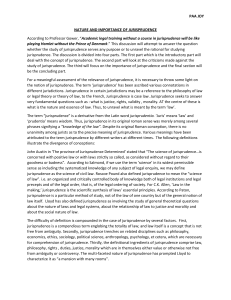Document 13486131
advertisement
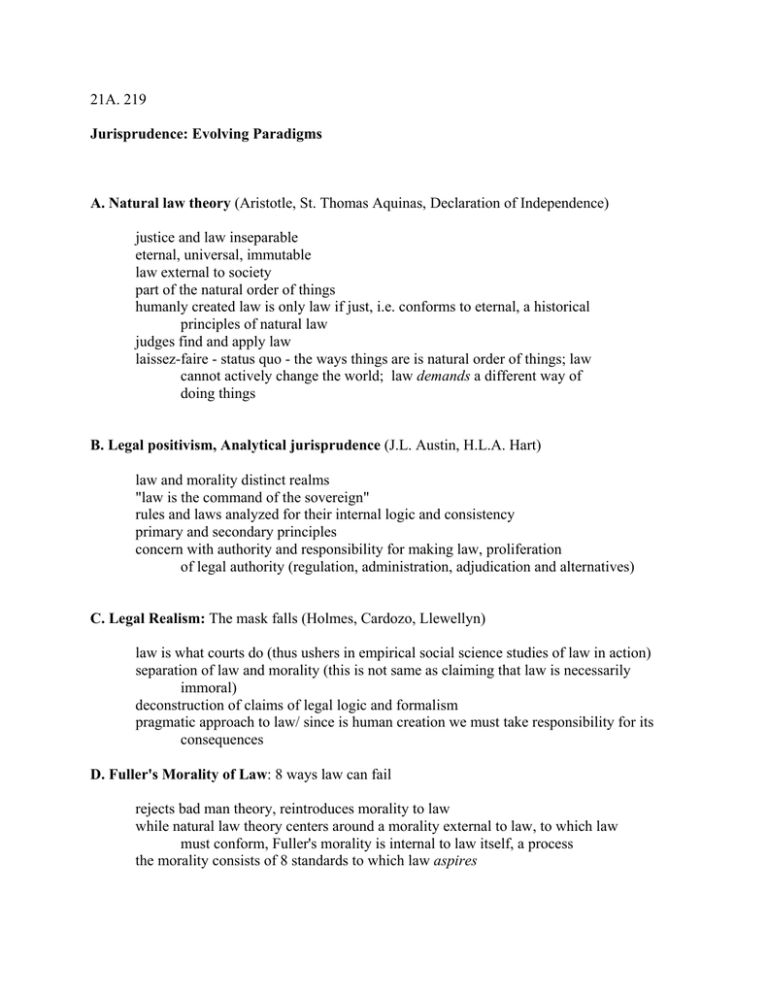
21A. 219 Jurisprudence: Evolving Paradigms A. Natural law theory (Aristotle, St. Thomas Aquinas, Declaration of Independence) justice and law inseparable eternal, universal, immutable law external to society part of the natural order of things humanly created law is only law if just, i.e. conforms to eternal, a historical principles of natural law judges find and apply law laissez-faire - status quo - the ways things are is natural order of things; law cannot actively change the world; law demands a different way of doing things B. Legal positivism, Analytical jurisprudence (J.L. Austin, H.L.A. Hart) law and morality distinct realms "law is the command of the sovereign" rules and laws analyzed for their internal logic and consistency primary and secondary principles concern with authority and responsibility for making law, proliferation of legal authority (regulation, administration, adjudication and alternatives) C. Legal Realism: The mask falls (Holmes, Cardozo, Llewellyn) law is what courts do (thus ushers in empirical social science studies of law in action) separation of law and morality (this is not same as claiming that law is necessarily immoral) deconstruction of claims of legal logic and formalism pragmatic approach to law/ since is human creation we must take responsibility for its consequences D. Fuller's Morality of Law: 8 ways law can fail rejects bad man theory, reintroduces morality to law while natural law theory centers around a morality external to law, to which law must conform, Fuller's morality is internal to law itself, a process the morality consists of 8 standards to which law aspires Eight ways law can fail to be law: 1. No rules; every issue decided on ad hoc basis 2. Failure to make rules public or known to those who will be subject to them 3. Retrospective law (making rules in the present and applying to past actions) 4. Failure to make rules understandable 5. Enactment of contradictory rules 6. Rules that require conduct beyond the powers of those affected 7. Frequent, unpredictable rule changes 8. Lack of congruence between rules and administration or enforcement
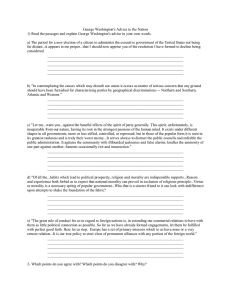


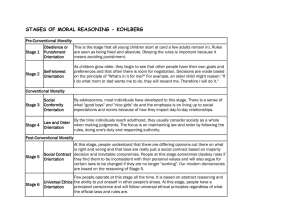
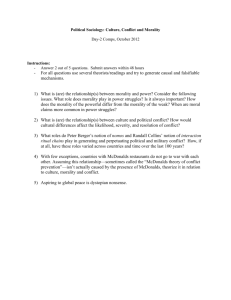
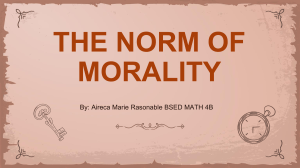
![GE201 ] commented](http://s2.studylib.net/store/data/013658641_1-988a23e69189559a1cd0fb49773e5018-300x300.png)
